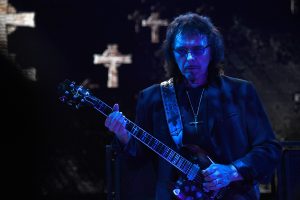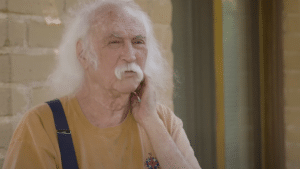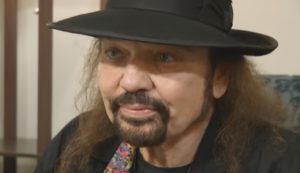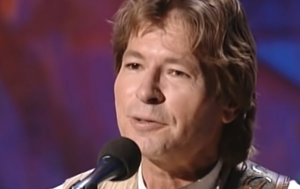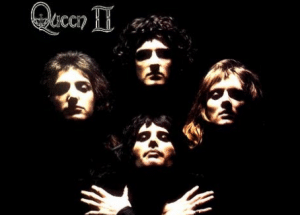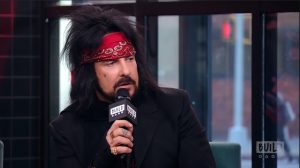The Famous Musicians That Died In 2023
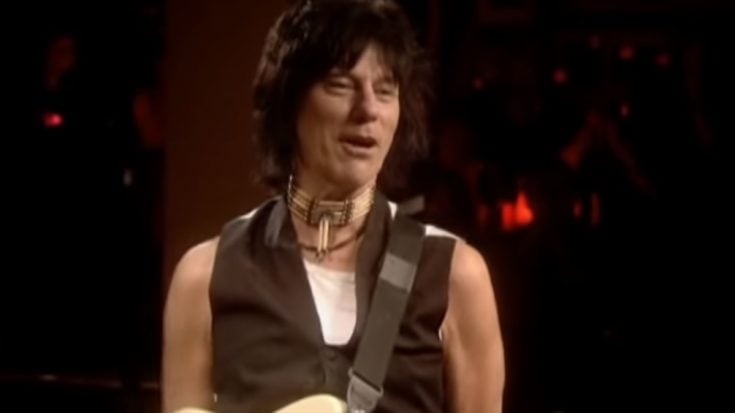
Jeff Beck live at Ronnie Scott's - Garibaldi1959New / Youtube
For those immersed in the world of music, every passing year elicits a blend of happiness and sorrow. While music enthusiasts can reliably anticipate a continuous stream of exciting new releases from both seasoned professionals and emerging artists, they also brace themselves for the inevitable loss of some of their most cherished musicians.
It’s not the Grim Reaper’s fault for simply carrying out his duties, yet the pain is undeniable when a musical icon bids farewell to join the celestial concert in the sky.
In the year 2022, we bid farewell to legends such as the incomparable Meat Loaf, mourned the untimely departure of tragic figures like Foo Fighters drummer Taylor Hawkins, and remembered multi-talented cultural icons like singer and actress Olivia Newton-John.
As we navigate the early days of 2023, several beloved musicians have already left the earthly realm. However, there is comfort in knowing that they will be forever remembered — because, unlike our mortal bodies, music possesses immortality.
Jeff Beck
When it comes to musical backgrounds, being a “former member of The Yardbirds” is a credential that stands out remarkably. According to Britannica, this iconic ’60s band has produced an exceptional number of extraordinarily talented guitarists — an astonishing three, to be precise.
And these three guitar maestros were Jimmy Page, who later skyrocketed to fame with Led Zeppelin; Eric Clapton, frontman for the supergroup Cream and a successful solo artist; and Jeff Beck, an unconventional musician who never encountered a musical challenge he couldn’t tackle.
Beck’s brief stints in non-self-named bands may be attributed to his groundbreaking style outpacing his bandmates. He pioneered jazz-rock fusion and experimented with distortion, paving the way for hard rock and heavy metal. His contributions led to eight Grammy wins and double induction into the Rock and Roll Hall of Fame — both solo and as a Yardbirds member.
On January 10, Beck passed away from bacterial meningitis, leaving a void in the music world. Former bandmate Jimmy Page paid tribute on Twitter, saying, “The six-stringed Warrior is no longer here for us to admire the spell he could weave around our mortal emotions. Jeff could channel music from the ethereal.”
David Crosby
Many professional musicians lead vibrant lives, but David Crosby’s journey was arguably more colorful than most. A folk-rock trailblazer, Crosby earned induction into the Rock & Roll Hall of Fame twice — first with the Byrds and then with Crosby, Stills, and Nash, both pivotal groups in the ’60s and ’70s music scene.
Despite facing challenges like addiction and health issues, Crosby remained dedicated to performing for decades, his distinctive voice resonating alongside Graham Nash and Stephen Stills.
In his last interview with Rolling Stone in February 2023, Crosby expressed his bewilderment at outliving many peers and shared insightful responses to reader questions.
When asked about the missteps of the “Peace and Love” generation, he reflected, “Well, I’ve asked myself the same thing. I’m an idealist … We are trying to evolve as human beings to the point where we don’t have ego, and anger, and greed, and lust running our affairs. I don’t know if we’re going to make it. I believe that we will.”Crosby passed away on January 18 at the age of 81.
Tom Verlaine
Television, a New York band, made a lasting impact on their ’70s contemporaries despite releasing only two albums, Marquee Moon (1977) and Adventure (1978). Though closely associated with CBGB and its influential role in launching bands like Blondie and Talking Heads, Television stood out with their unique blend of sprawling art-rock and a punk attitude.
Guitarist and singer Tom Verlaine played a pivotal role, influencing future megastars like R.E.M., Red Hot Chili Peppers, and U2.
Despite critical acclaim for Verlaine’s experimental guitar work, distinctive vocals, and clever lyrics, Television’s unclassifiable sound and Verlaine’s anti-commercial stance prevented them from achieving the massive following they deserved. In a 2006 New York Times interview, Verlaine summarized his life as “Struggling not to have a professional career”. Although Television released a 1991 reunion album, their ’70s work left an indelible mark on numerous bands.
The band continued to captivate fans with occasional live performances well into the 2000s and 2010s, earning praise for their latter-day shows. Verlaine passed away on January 28 at age 73.
https://twitter.com/LazyStardust5/status/1619482762079256577
Steve Mackey
Despite being established in 1978, the Britpop band Pulp struggled to achieve commercial success for over a decade. Led by vocalist and lyricist Jarvis Cocker since his teenage years, the band underwent various lineup changes and stylistic shifts in the ’80s.
It wasn’t until the mid-’90s Britpop explosion, with bassist Steve Mackey in the semi-stable lineup, that Pulp found commercial success with albums like His ‘n’ Hers (1994), Different Class (1995), and This is Hardcore (1998).
Following Pulp’s disbandment in the early 2000s, Mackey explored photography and continued his work as a songwriter, producer, and remixer for artists like Florence + The Machine and Arcade Fire. Sadly, Mackey’s post-Pulp journey came to an end on March 2 due to an undisclosed illness.
As a tribute, Pulp shared a photo of Mackey hiking in the Andes in 2012 on their official Instagram page, captioned, “Steve made things happen. In his life [and] in the band. We’d very much like to think that he’s back in those mountains now, on the next stage of his adventure.” Mackey was 56.
Gary Rossington
Lynyrd Skynyrd, the Southern rock icons, achieved notable success in the ’70s with four studio albums and a live recording. However, tragedy struck in 1977, just days after the release of their fifth studio album, Street Survivors.
The band’s chartered plane crashed in Mississippi, claiming the lives of lead singer Ronnie Van Zant, guitarist Steve Gaines, and backup singer Cassie Gaines, forever altering the band’s lineup and trajectory.
Despite the loss, Lynyrd Skynyrd persevered with various configurations over the years, led by Ronnie Van Zant’s brother, Johnny Van Zant. The passing of original drummer Bob Burns in 2015 left guitarist Gary Rossington as the sole founding member. Ironically, Rossington, who inspired the band’s cautionary song “That Smell”, had survived a car crash in 1976 while under the influence of alcohol and drugs.
Dealing with heart problems for some time, Rossington, the last surviving original member, passed away on March 5 at the age of 71 from an undisclosed cause.
Jim Gordon
In an alternate reality, Jim Gordon is celebrated for a singular achievement — being one of the most skilled and reliable drummers to grace a drum kit. Mentored by the renowned Hal Blaine and a former member of the esteemed studio ensemble known as the Wrecking Crew, Gordon’s drumming resonates in some of the most iconic recordings from rock’s early days.
His extensive repertoire includes contributions to classics like “Layla” by Derek and the Dominoes (which he co-wrote), “You’re So Vain” by Carly Simon, “Rikki Don’t Lose That Number” by Steely Dan, and “Apache” by the Incredible Bongo Band. However, beneath his remarkable work ethic and skill lurked a tragic secret — he battled schizophrenia, enduring auditory hallucinations since his youth.
In a 1985 interview with Rolling Stone, Gordon revealed, “The voices were chasing me around. Making me drive to different places. Starving me. I was only allowed one bite of food a meal. And, if I disobeyed, the voices would fill me with a rage.”
Gordon, obedient to these voices, committed an unthinkable act on June 3, 1983 — he attacked and killed his 71-year-old mother in her Hollywood apartment. Sentenced to 16 years to life in prison, he consistently declined parole hearings. Gordon passed away at the age of 77 on March 13 while serving time.
Tom Leadon
In 1970, renowned singer-songwriter Tom Petty, guitarist Tom Leadon (the brother of the Eagles’ Bernie Leadon), drummer Randall Marsh, and future Heartbreakers Mike Campbell on guitar and Benmont Tench on keyboards formed Mudcrutch, a country-influenced rock band that honed their skills in Florida’s bar scene for several years.
After moving from the Everglades to Los Angeles in 1974, Mudcrutch signed with Shelter Records but disbanded shortly after, allowing Petty to embark on his highly successful career.
Surprisingly, in 2007, the entire Mudcrutch lineup reunited to record a self-titled album, followed by a second effort titled 2 in 2016. This represented a unique and rare second chance for a band that might have achieved superstardom if they had continued in the ’70s. Sadly, Tom Petty’s unexpected passing in 2017 halted their resurgence.
On March 22, Leadon, who maintained close bonds with his Mudcrutch bandmates throughout their illustrious Heartbreakers careers, passed away at the age of 70 in his Gainesville home. Following his death, Campbell took to Twitter to offer a heartfelt tribute to his “guitar soul brother,” stating, “We spent countless hours playing acoustic guitars and teaching each other things. A kinder soul never walked the earth. … Sleep peacefully my old friend.”
Ian Bairnson
Ian Bairnson, a skilled Scottish guitarist and multi-instrumentalist, could have boasted an impressive musical legacy if he had chosen to end his career after his first band, Pilot. This ’70s rock group achieved hits with songs like “Magic” in 1974 and “January” in 1975, releasing four albums during the decade and staging a reunion in 2002. However, it was Bairnson’s additional musical pursuits that truly showcased his exceptional talent.
In recent years, Bairnson battled dementia, and on April 8, his wife Leila shared the news of his passing on Instagram. She expressed, “Ian was the sweetest, kindest, loving husband I could ever have wished for and I take comfort that he is resting now up there in his very own piece of ‘Blue Blue Sky,'” referring to the tune from Alan Parsons’ 1996 solo effort On Air, where Bairnson played.
Parsons paid homage to Bairnson with a comprehensive tribute on Facebook, hailing him as a “genius” and a “true master of the guitar” who possessed knowledge of every chord despite never learning to read musical notation.
Parsons also credited Bairnson with persuading him to record the 1982 single “Eye in the Sky”, ultimately becoming the Alan Parsons Project’s sole Top 10 hit.
Gordon Lightfoot
Gordon Lightfoot, the renowned Canadian singer and songwriter, stood out as one of the most distinctive voices of his era. His earthy, unique vocal tone and a penchant for insightful, personal lyrics positioned Lightfoot as a premier solo recording artist in the ’70s.
Notably, he achieved Top 10 hits with classic tunes such as “Sundown”, “If You Could Read My Mind”, and “Carefree Highway”. In an unexpected success, his epic ballad “The Wreck of the Edmund Fitzgerald”, recounting a famous maritime disaster, spent an impressive 21 weeks on the Billboard chart, peaking at No. 2.
Lightfoot remained active in his musical pursuits until his final days. However, on April 11, he had to cancel a scheduled U.S. and Canadian tour. Sadly, less than a month later, on May 1, Lightfoot passed away in a Toronto hospital at the age of 84.
Canadian Prime Minister Justin Trudeau, in a tweet, conveyed the sentiments of the nation and Lightfoot’s devoted fans, stating, “We have lost one of our greatest singer-songwriters. Gordon Lightfoot captured our country’s spirit in his music — and in doing so, he helped shape Canada’s soundscape. May his music continue to inspire future generations, and may his legacy live on forever.”
Pete Brown
Pete Brown, the British singer, songwriter, lyricist, and poet, may not have achieved household name status, but his lyrical contributions have likely left an ineffaceable mark on your memory if you’re a fan of classic rock, particularly the legendary supergroup Cream.
In the mid-’60s, when Cream was formed, Brown, a Beat poet who had previously made a name for himself in that scene, drew the attention of drummer Ginger Baker through his work with jazz guitarist John McLaughlin’s First Real Poetry Band. Baker enlisted Brown to provide lyrics for Cream’s debut studio album, Fresh Cream, where he played a crucial role, starting with the creation of the hit single “I Feel Free” and going on to craft numerous iconic tunes for the band.
Brown’s contributions, including “Sunshine of Your Love”, “Deserted Cities of the Heart”, “Politician”, and the signature “White Room”, established him as the uncelebrated hero behind one of the most significant and influential bands of the ’60s.
Subsequently, Brown took on the role of a vocalist in bands like Piblokto and The Battered Ornaments, maintaining frequent collaborations with Cream bassist Jack Bruce, with whom he shared a special chemistry. His passing at the age of 82, following a battle with cancer, was announced on his Facebook page. He is survived by his wife, Sheridan, and two adult children.
Andy Rourke
In 1984, The Smiths made a bold entrance with their eponymous debut album, establishing themselves as a counterforce to the prevailing dominance of synth-driven bands in the U.K.
Led by the intricate, layered guitar stylings of Johnny Marr and the disenchanted vocals of lead singer Morrissey, The Smiths acted as a connection between New Wave and the guitar-driven sound that would define British pop in the ’90s.
Integral to their distinctive sound was the melodic and propulsive bass work of Andy Rourke, who continued collaborating with Morrissey after the band’s disbandment. Rourke also contributed to the supergroup Freebass and collaborated with icons like Sinead O’Connor and The Pretenders.
Sadly, his life and career were tragically cut short on May 19, succumbing to pancreatic cancer at the age of 59. Johnny Marr announced Rourke’s passing on Twitter, describing him as a “kind and beautiful soul” for those who knew him and a “supremely gifted musician” for music enthusiasts.
Tina Turner
Tina Turner, one of the most iconic vocalists in rock, personified resilience throughout her career. Initially recognized for her outstanding vocals alongside her husband Ike Turner on tracks like “River Deep, Mountain High” and their rendition of Creedence Clearwater Revival’s “Proud Mary”, the duo’s success was overshadowed by Ike’s abusive behavior.
Following her separation from Ike in 1976, Tina embarked on a solo journey later in the decade. Although her solo career seemed to lose momentum in the early ’80s, appearances proved deceptive. In 1984, Turner unleashed Private Dancer, a monumental success selling 20 million copies worldwide, winning three Grammy awards, and producing timeless hits such as “What’s Love Got to Do With It”, “Better Be Good to Me”, and the titular track.
Throughout the ’80s and ’90s, Turner continued recording, achieving chart-topping albums with Break Every Rule in 1986 and What’s Love Got to Do With It in 1993, which served as the soundtrack to the biopic featuring Angela Bassett.
On May 24, at the age of 83, Turner passed away from natural causes at her residence in Switzerland. In the statement announcing her departure, as conveyed by Sky News, Turner’s publicist remarked, “With her, the world loses a music legend and a role model.”
George Tickner
Before becoming colossal arena rock sensations, Journey from San Francisco started as a typical jazz-rock fusion band, delivering mainly instrumental compositions across three often-overlooked albums from 1975 to 1977.
The initial quartet that formed the band looked vastly different from the lineup that would achieve immense commercial success in the late ’70s, ’80s, and beyond. Only lead guitarist Neal Schon and bassist Ross Valory remained from the early days to persist with the group into the era featuring powerhouse lead vocalist Steve Perry, who joined with their fourth album, 1978’s Infinity.
The original drummer, Prairie Prince, would later collaborate with The Tubes and Todd Rundgren, while guitarist George Tickner, departing after the band’s eponymous 1975 debut album, chose a different path, leaving the rock and roll scene to pursue a career in medicine.
Over the years, Tickner maintained amicable ties with his former bandmates. On July 4, Schon announced Tickner’s passing at the age of 76 on Facebook, recognizing his significant influence on Journey with a nod to a song Tickner wrote on their debut album. “Dear George,” he expressed, “‘Of a Lifetime’ is still one of my favorite songs ever. RIP brother God Speed.”
Sinead O’Connor
Irish singer Sinead O’Connor first captured the music world’s attention with her 1987 debut album, The Lion and the Cobra, which reached No. 36 on the Billboard chart. Despite lacking a hit single, O’Connor’s voice showcased an undeniable and compelling range, capable of extreme tenderness, raw power, and everything in between.
Her songwriting prowess hinted at an imminent breakthrough into major stardom, and indeed, it happened with her 1990 release, I Do Not Want What I Haven’t Got. The lead single, “Nothing Compares 2 U”, originally recorded by the lesser-known R&B group The Family and written by Prince, catapulted to No.1 on the pop chart.
In later years, O’Connor became more renowned for her activism than her music. In a notably shocking 1992 appearance on Saturday Night Live, she delivered a poignant a capella rendition of Bob Marley’s “War” and, in a bold move, presented a picture of Pope John Paul II, tearing it to pieces while declaring, “Fight the real enemy”.
Despite being unwavering in her dedication to her craft and uncompromising in her beliefs, O’Connor faced well-documented personal struggles, including the tragic loss of her 17-year-old son in 2022. On July 26, O’Connor’s family announced her passing at the age of 56, citing undisclosed causes.
https://twitter.com/WUTangKids/status/1684279672828313600
Randy Meisner
The Eagles, a band with an unparalleled wealth of talent probably second only to The Beatles, consistently featured exceptional instrumentalists, uniformly stellar vocalists, and gifted songwriters throughout their changing lineup.
While guitarist Glenn Frey and drummer Don Henley assumed creative dominance, original bassist Randy Meisner consistently preferred staying out of the limelight. In a 2013 interview with Rolling Stone, Meisner expressed his shyness, hesitating to take center stage even when singing lead. However, there was a notable exception: his voice, a crisp and clear tenor, was truly extraordinary.
Meisner took the lead on one of the Eagles’ most iconic songs, “Take It to the Limit”, a vocal showcase where he effortlessly hit high notes on the fadeout, a feat that could challenge even the most accomplished vocalists. His reluctance to frequently perform the song live played a role in his departure from the band in 1977, with Timothy B. Schmit taking his place.
Meisner then enjoyed a reasonably successful solo career in the early ’80s before largely stepping away from the music industry. He reunited with his Eagles bandmates for a performance during their 1998 Rock Hall of Fame induction. On July 26, Meisner passed away at the age of 77 in a Los Angeles hospital.
https://twitter.com/JeffOwen71/status/1684861247441850368
Robbie Robertson
Robbie Robertson, born in Toronto, demonstrated a distinct disinterest in pop stardom, a trait that shaped one of the most intriguing careers in the music industry. He commenced his musical journey with The Hawks, transitioning from supporting rockabilly singer Ronnie Hawkins to a more prominent role with folk icon Bob Dylan.
The band, renamed The Band, marked their presence with the debut album Music from the Big Pink in 1968. Despite not achieving massive commercial success, The Band garnered a devoted fan base and earned critical acclaim, receiving lifetime achievement awards from both the Grammys and the Canadian Juno Awards.
After The Band’s dissolution in the mid-’70s, they bid farewell in grand fashion with a 1976 concert at San Francisco’s Winterland, captured by filmmaker Martin Scorsese and released as The Last Waltz in 1978, celebrated as one of the greatest concert films ever. Robertson continued his collaboration with Scorsese, contributing to the scores of renowned films like Casino, The Gangs of New York, and The Wolf of Wall Street.
He pursued a dual musical career, releasing solo work and reuniting with The Band in 1993. Robertson passed away on August 9 at the age of 80 after a prolonged illness. His final collaboration with Scorsese can be heard in the 2023 film Killers of the Flower Moon.
Gary Young
In the early ’90s, the indie rock ensemble Pavement, characterized by their unique blend of noise and laid-back vibes, played a significant role in defining the genre. Their initial EP caught the attention of renowned British DJ John Peel, propelling the band into the limelight.
As they expanded, bassist Mark Ibold and drummers Gary Young, who had featured on the EP, and Bob Nastanovich, a college friend of guitarist Stephen Malkmus, joined the lineup. The addition of a second drummer, Young, became necessary due to his occasionally erratic playing and penchant for on-stage antics like handstands and distributing food (sometimes while intoxicated).
Despite contributing to Pavement’s distinctive, often messy sound, Young left the band in 1993 after participating in their breakthrough album, Slanted and Enchanted (1992). Nevertheless, he maintained amicable relations with his former bandmates, returning to produce two tracks on their final recording, the 1999 Major Leagues EP.
Young even rejoined for a couple of shows during the band’s 2010 reunion tour. His passing at 70 on August 17, just months after the premiere of the well-received documentary Louder Than You Think at SXSW, prompted Malkmus to pay tribute on Twitter, acknowledging Young’s drumming as “one take and hit record.”
Jimmy Buffett
Jimmy Buffett, a talented singer and songwriter known for his fusion of musical styles, had a particular fondness for a genre he truly cherished — a blend of country, rock, and calypso-infused island music that whisked his fans away to the tropical paradises he adored.
Boasting an extensive career, Buffett released over two dozen studio albums, 17 of which achieved gold or platinum status. Albums like Havana Daydreamin‘, Changes in Latitudes, Changes in Attitudes, and Coconut Telegraph exemplified his unique style of “island escapism”, developed after relocating to Key West, Florida. His iconic hits, including “Margaritaville” and “Cheeseburger in Paradise,” encapsulated this carefree island spirit.
On September 1, Buffett passed away at 76 after battling a rare form of skin cancer for five years. Despite his ripe old age and enduring musical legacy, his devoted “Parrothead” fans mourned his departure.
In an op-ed for Florida Keys News, his sister Lucy “LuLu” Buffett reassured fans that her brother’s final moments were surrounded by the things he loved — family, dogs, music, and elements like water and sand from the Gulf of Mexico that had inspired his childhood dreams. His last words to her were, predictably, “Have fun,” and, likely, he’s currently savoring a cheeseburger and a margarita at the bar in paradise.
https://twitter.com/lovepups4life/status/1729949146067685854
Steve Harwell
Forming an opinion about veteran rockers Smash Mouth is nearly impossible; music enthusiasts tend to either adore or despise them. The reason behind this stark divide lies in the mind-blowingly catchy (or infuriating, depending on one’s perspective) nature of their songs.
Lead singer Steve Harwell played a significant role in this musical allure, guiding the band from its inception in 1994 until his retirement in 2021. His impeccably poppy voice and unwavering commitment propelled Smash Mouth to success in the ’90s. With chart-topping singles like “All Star”, “Walkin’ On the Sun”, and the Monkees cover “I’m a Believer”, the band sold over 6 million records, with Harwell’s larger-than-life vocal prowess and stage presence serving as their not-so-secret formula.
Harwell retired due to health issues, expressing gratitude for living out his dream of being a rock star. Unfortunately, his health challenges persisted, leading to his passing on September 4 from liver failure at the age of 56.
Smash Mouth manager Robert Hayes, in a statement to Rolling Stone, described Harwell as “a true American original — a larger-than-life character who shot up into the sky like a Roman candle.” Hayes highlighted Harwell’s tools of irrepressible charm, charisma, fearless ambition, and “king-size cajones”, noting that he lived a life at full throttle.
Gary Wright
Gary Wright, a singer, songwriter, and keyboardist, would have left a significant mark on the music scene even without venturing into a solo career. Following his time playing keys and composing for the ’70s hard rock group Spooky Tooth, he contributed to ex-Beatle George Harrison’s iconic solo release All Things Must Pass and collaborated with artists like B.B. King, Harry Nilsson, and Ringo Starr.
Meanwhile, he sporadically released solo LPs that gained limited attention. However, in 1975, he achieved notable success with an LP titled The Dream Weaver that prominently featured synthesizers, a rarity at the time, leading to platinum status and two major hit singles.
One of the standout hits was the titular track, an alternately ominous and plaintive ballad enriched with piercing, fluttering, and trickling synths, creating a hypnotic and surreal soundscape reflective of its name. This track reached No. 2 on the pop chart.
While Wright didn’t replicate this level of chart success, his close friendship with Harrison steered him toward a life dedicated to Eastern mysticism, a theme reflected in both of his chart-topping singles, as revealed by his son Justin Wright to The New York Times. On September 4, Wright passed away at the age of 80.




